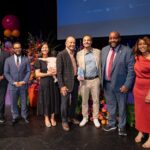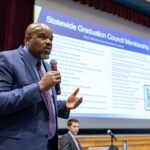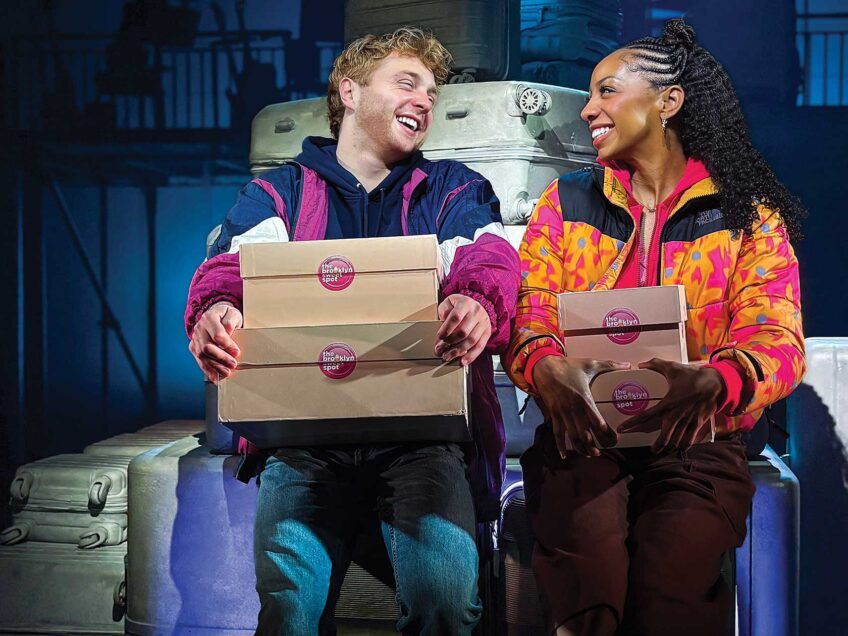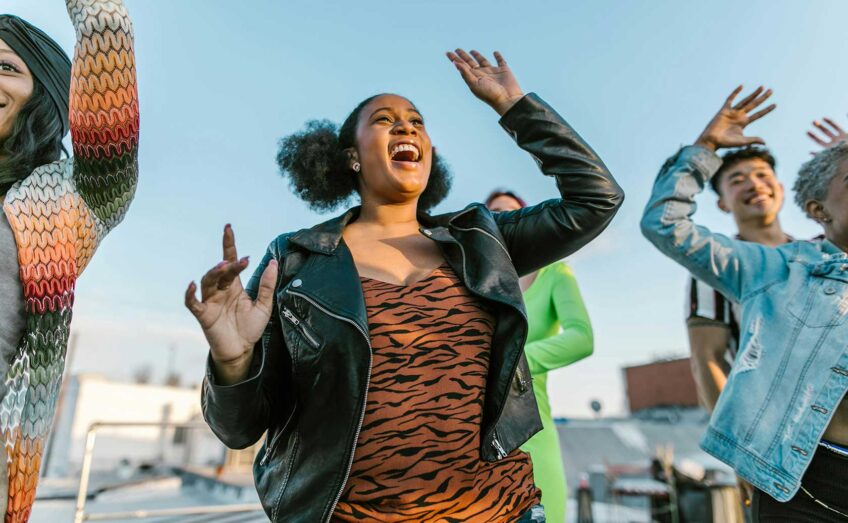
On Thursday night, Sept. 27, two ensembles led by female drummers got the fourth season of RISE, the Isabella Stewart Gardner Museum’s contemporary music series, off to a sensational start.
Three-time Grammy winner Terri Lyne Carrington and her ensemble followed the first set, performed by a septet led by Jas Kayser, a graduate student in the Berklee Global Jazz Institute. Carrington is the program’s artist in residence and founding artistic director of Berklee’s new Institute for Jazz and Gender Justice.
In a set infused with Afro-beat rhythms, Kayser, on drum kit, led an ensemble featuring singers Danny Garza and Niu Raza, Milena Fauquet on flugelhorn, Margaux Vranken on electric and acoustic pianos and Dana Roth on electric bass. Contributing both lyrical solos and rhythmic textures, guitarist Lior Tzemach performed for both bands.
Ascending melodies
Garza, Raza and Fauquet were captivating from the start, the two singers blending their voices into a soaring wordless melody while alongside them, Fauquet injected deep low notes and trumpet-like jabs and Vranken, shifting between electric and acoustic keyboards, deftly braided Caribbean-inflected melodic threads. One selection gave the lead to Garza, who despite his boyish looks lent his ballad the rich timbre of an old-school crooner. Each member of the ensemble excelled, with Kayser, barely visible behind them, delivering a big, rich sound on her kit.
The evening’s one reference to politics was Carrington’s introduction to her first selection. “This is an election song,” she said, as, exquisitely backed by Santiago Bosch on electric and acoustic keyboards, vocalist Debo Ray launched a deeply blue rendering of “The Waiting Game.” A commanding storyteller with her voice and body, Ray injected the song with gospel intensity as she stretched and swiveled her body to look her listeners in the eye, even those seated two levels above her in the Gardner’s intimate cube of a concert hall, designed by Renzo Piano as part of the 2012 contemporary wing.
Many more pleasures followed, as Carrington, like Kayser, showcased the talents of her ensemble, which also included multi-instrumentalist Morgan Guerin on saxophone and electric bass, Jared Henderson on acoustic bass and Kassa Overall, quirky and complex with both his voice and turntable. Carrington said of Overall, “He’s a great jazz drummer as well,” noting that he performed often, as she did, with revered pianist and composer Geri Allen, who died last year.
.
Set surprises
Carrington’s eclectic set included Duke Ellington’s “Backward Country Boy Blues,” spun out by her and her band into a delirious, foot-stomping, hand-clapping and vocal improvisation of crisscrossing rhythmic currents; a staccato recital by Overall of Duke Ellington’s poem “Music” and a rendering of Joni Mitchell’s ballad “Love.” As Carrington led the ensemble in the Duke Ellington hymn “Come Sunday,” it seemed that she was concluding her set as she had begun it, with a prayer for better days.
Instead, Carrington called Kayser and her musicians back to join her ensemble in a high-spirited delivery of Geri Allen’s composition “And they Partied” and the camp hit “You Can’t Pray the Gay Away.” The finale included a long, powerful solo by Carrington that felt cathartic, as well as a thrilling drum duo by Carrington and Kayser.
Carrington draws freely from decades of music, including fusion, free jazz, bebop, Latin jazz, funk, R&B and soul, as did Geri Allen. Her expansiveness is shared by a number of her contemporaries, including jazz pianist and visual artist Jason Moran, who on Monday night opened his show at the Institute of Contemporary Art Boston with a riveting interlude on a grand piano. Both Carrington and Moran are originals, educators (Moran teaches at New England Conservatory), naturals at collaboration and omnivores in their partnerships.
Our elected officials in the nation’s capital could learn from the culture of civility, mutual respect and collaboration that are embedded in the jazz tradition. During yet another turbulent, scandal-ridden week in Washington, D.C., it was a joy to see two women, both drummers and leaders of bands, at work bringing out the best in their ensembles and themselves.






